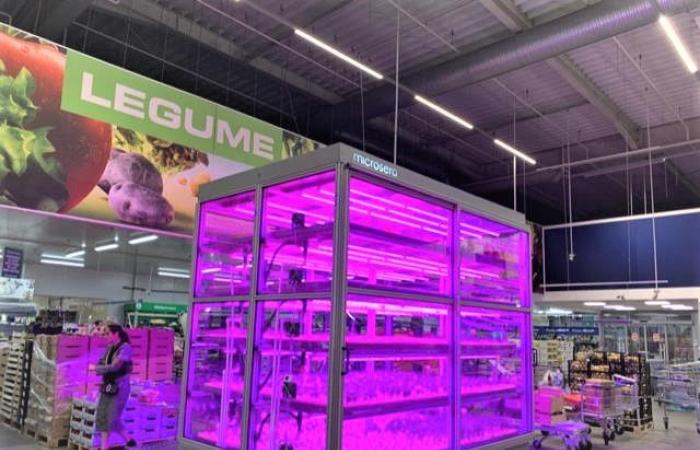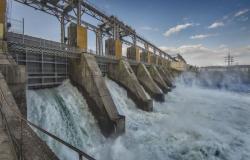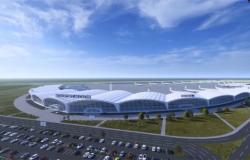
Entrepreneur-founded microgreens producer Fresh Microgreens Cristian Tudor, will complete in the coming months an investment of 2.2 million euros in two vertical farms, in Ploiesti and Tătărani, Prahova. The products will reach the shelves of Kaufland stores and will be used as raw material by Eisberg, the Romanian market leader in the washing and packaging of salads, part of the Swiss Bell Food group.
The unit at Tătărani, the largest vertical greenhouse in Europe at the moment, will be operational from November. It was made in collaboration with Eisberg, which will also take over production in the form of baby leaves from different species.
The production unit in Ploiesti, made in collaboration with the retailer Kaufland, will start in September, now being in a “period of fine adjustments to optimize production, according to the assortment agreed with Kaufland, the beneficiary of this project”, according to the company.
Basically, Fresh Microgreens makes the investment, operates the production facility and predictably sells to a large consumer. The partnership between the two is supplier-beneficiary type.
“Our business concept is extremely simple: we produce predictably, all year round, at the same cost, the raw material that a large consumer like Eisberg needs. This availability of production eliminates the need for import and especially situations where the raw material is not available. Climate change has produced drastic changes in the efficiency of farming in the field and yields have dropped drastically. (…) We have 100% predictability of sales, the buyer has a 100% guarantee of raw material availability and a cost that does not depend on speculative market fluctuations. Of course, the production cost can vary depending on the change of some macro-economic parameters (energy costs, labor force, etc.) but these variables are manageable and can be integrated into the business plan of both the supplier and the buyer”, he explained for Economica, Cristian Tudor, founder of Microgreens Romania.
According to him, the company was considering an investment of just under one million euros. However, the budget doubled as a result of the increase in the cultivated area, but also due to price changes in construction materials and various equipment. “From one fire we are talking about an increase of approximately 30%. The total investment is now approximately 2.2 million euros. The sources are private capital and the bank loan from OTP Bank”, the entrepreneur also specified.
“It was a formidable research and design effort, including from a financial point of view, because (the Tătărani farm n.ed.) is an innovative technological concept, fully developed in-house. In terms of execution, we are at 35% and moving forward rapidly. We will complete the project and go into production by the end of this year. (…) It is a difficult and fluid period in terms of the procurement side, but – fortunately – during the design and preparation stage of the project we have identified an important number of strong technological partners, who provide us with the necessary resources for the continuity of the works”, he also explained.
What the largest vertical farm in Europe will look like
At the vertical farm in Tătărani, 250 tons of raw material for baby leaf salads will be produced per year, using only 864 square meters, i.e. 7.5 times less than the cultivated area. Only a few workers will work there. The entire farm activity can be controlled by one man from a central console. The rest of the workers have relatively simple tasks, equivalent to tasks on an automated production line.
“The production unit at Tătărani has a distributed cultivation area of 6500 m2, with a footprint of only 864 m2. In the room where the plants are grown, we have overlapping shelves on which are hydroponic cultivation trays. For every meter occupied on the ground, we have available 7.5 square meters of culture, distributed vertically. Vertical Farming technology is not exactly new, but the know-how we have accumulated is given by our own resources, developed over time. In addition to other solutions on the market, we managed to design an automated system in the growing area that ensures an extraordinary compaction of the space used and eliminates the need for human presence in the most sensitive area, the one where plants germinate and develop. This reduces the risk of pest contamination to almost zero and consequently makes a zero pesticide policy possible. In addition, we have high economic efficiency and excellent traceability, because all growing conditions are carefully monitored and the risk of human error is eliminated. From the grower’s point of view, the biggest advantage is predictability, you know exactly how much you will produce and how much this production will cost you”.
The development of the concept, from the idea stage to the technical project stage with clear execution and implementation specifications, took almost a year and involved a team that now numbers over 10 people. “We are working at an absolute pioneering level,” says Tudor.
Business of 8-8.5 million lei in 2022, with approximately 60% over 2021. Target – 3.5 million euros
Until the middle of this year, the producer reported sales of approximately 3.5 million lei, and for the whole year, without taking into account the production from the two new vertical farms, he estimates business of 8 – 8.5 million lei, which represents an increase of about 60% compared to 2021.
Microgreens sells retail through 15 microgreenhouses located in Kaufland, Carrefour, cora, Metro supermarkets, but also online.
“First of all, one of the industries that represents an important market for us, Horeca, has started to recover from the restrictions imposed by the dangerous period of the Covid pandemic. The appetite for micro-plants and specialties for culinary decoration has increased. Secondly, a group of consumers oriented towards a healthy lifestyle is beginning to consolidate. Our efforts to communicate the nutritional qualities of microplants, started back in 2015, are starting to pay off. Retail is starting to have a growing share in sales,” the company’s founder also stated.
According to him, with both new production facilities (Green hubs) at full capacity, the company’s run rate (an indicator that estimates the company’s performance through an extrapolation of current performance, assuming that it will continue under the same conditions) is 3.5 million euros.
In terms of profitability, the company says the war in Ukraine has driven up energy costs, but also raw material prices. Similarly, the cost of labor has seen significant increases, and the price of products cannot increase at the same rate as the currency devaluation, “so inflation may lead to a certain reduction in the rate of profit.”
In 2021, the company’s profit was 585.8 thousand lei.
As for the source of investments, so far private sources and a bank loan worth 1 million euros have been used. The company attracted, last year, an investment of 500,000 euros from Vlad Popescu, Alex Cristescu and Marius Alexe, administrators of the producer of organic fertilizers Norofert. Also, the company had announced its intention to list on the AeRO market of BVB, following a private placement, but the project is on stand by.
“We need accelerated development and high speed of execution. This requires quick investment. For this reason we chose to attract other sources of funding. At the moment the process is on stand by”.
Tags: Economica .net largest vertical greenhouse Europe located Prahova operational November Fresh Microgreens invested million euros projects supply Eisberg Kaufland
-




